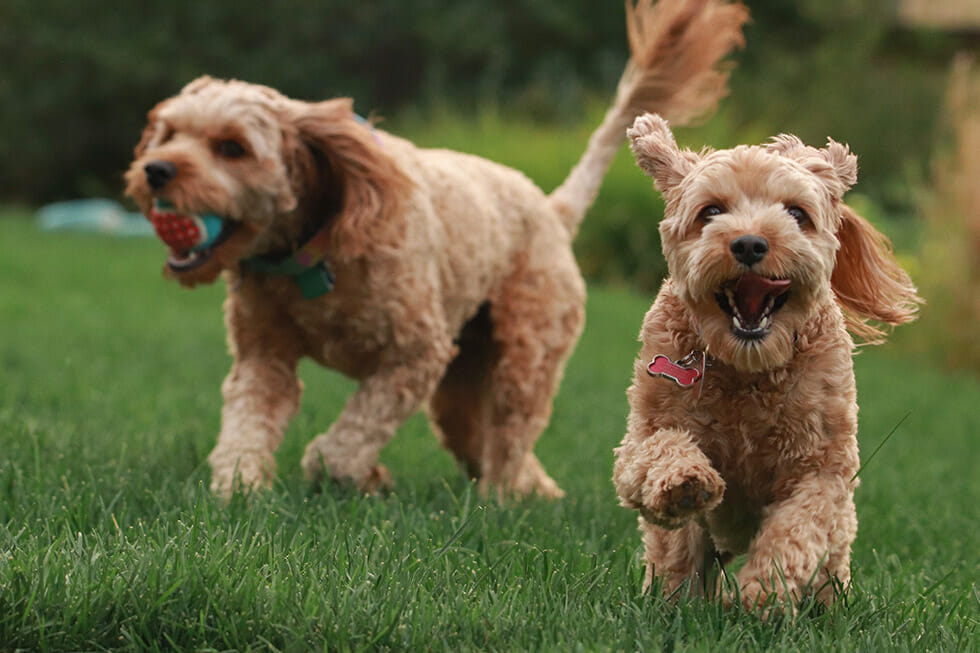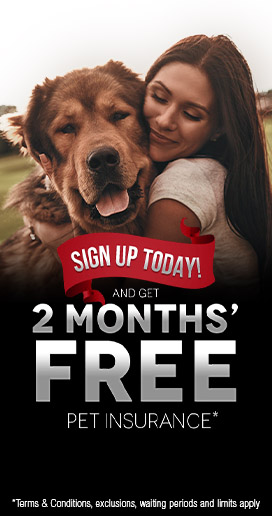
Socialising Dogs After Covid
With so many Australians introducing pets into their homes during the covid pandemic, many dogs have not had the correct amount of socialisation needed to become well-rounded and happy dogs. Pet Insurance Australia looks at what pet owners should do if they are noticing any behavioural problems in their dogs.
“Puppyhood is paramount for socialisation and learning how the world works,” Nadia Crighton from Pet Insurance Australia says. “Sadly, Covid lockdowns prevented this experience for many Aussie dogs, and pet owners may now start to see some of the behavioural consequences of this situation.”
Pet owners may notice that their dogs simply do not like other dogs or pets, or more concerning – other people.
“Socialising dogs is vital in the early stages of puppyhood, allowing them to experience as many situations as possible,” Crighton says. “If a dog was not able to experience the company of other dogs, people, cars and certain loud noises, pet owners may be noticing some unwanted behaviours when their dogs come into contact with these stimuli.”
This behaviour can show in fear or anxious tendencies, or worse, aggression and nervousness. Pet owners are advised to ask themselves to monitor their dog’s behaviour in certain situations and ask:
- Do they look agitated when meeting other people or pets?
- Is the hair on the back (hackles) raised in certain situations?
- Nervous or unsettled behaviour when out and about?
- Do they hide to seem fearful when around people or other pets?
“If you notice that your young dog is struggling with certain situations it’s advised to seek professional advice from your veterinarian or professional dog trainer,” Crighton suggests. “Getting help early is recommended before the behaviour becomes too ingrained.”
As the world begins to move past the restraints of Covid and endless lockdowns, pet owners may also be leaving their dogs at home alone for much longer periods of time.
“Separation anxiety is also a concern as many of us head back into the office environment,” Crighton says. “For dogs that do not know what it’s like to spend long periods of alone time, this may also lead to issues.”
Routine is the key when helping a pet deal with the reduced amount of attention. Pet Insurance Australia suggests including a morning and evening walk with your dog and scheduling some playtime.
“Dogs can start to exhibit signs of boredom suddenly, particularly if they are used to you always being at home, so ensure you enrich their environment to avoid destructive behaviours,” Nadia says. “Keeping your dog entertained when you are not at home is easy with a few simple steps, also increasing exercise levels will help.”
The trick is to make your dog’s outdoor or indoor environment interesting, different, and challenging on a daily basis. To starve the boredom off consider the following;
- Home Alone Toys – have a good selection of toys that you rotate daily. Pick them up when you return home and put them away. This will increase the life of your dog’s toys and will keep them interested for longer. Plus, they’ll never know what selection of toys they are getting each day.
- Create a fun area for your dog – such as a half-clam shell (kiddy pool) fill one side with sand and bury some treats. Fill the other with a small amount of water.
- Challenges – think treat balls, Kongs stuffed with goodies or frozen biscuits (soak a portion of your dog’s daily diet in water then stuff the Kong and freeze), puzzle balls. Just remember to remove the food from your dog’s dinner or you might have an overweight entertained dog!
- Chewing – deer antlers, raw big bones, synthetic bones, give your dog something to chew.
“It’s also good to remind the kids that their furry friend could be feeling a little lonely during this time,” Nadia recommends. “A little extra pat, praise, and attention can go a long way until everyone adjusts back into normal work and school life.”
PIA also suggests that if you are concerned about your dog’s behaviour in any way seek professional advice.
“If your pet seems sad or withdrawn or is exhibiting strange behaviour call in the experts, the sooner you get to the core of the problem the better,” Crighton says.
Featured by:
Photo by Mia Anderson
Get the latest Pet Insider Tips & News
We offer award-winning* pet insurance policies to protect your furry friend’s health and wellbeing. Get a quote today and give your pets the care they deserve.
Archives
Categories
- Cat Care (65)
- Cats (2)
- Dog Care (129)
- Guides (29)
- Health and Nutrition (201)
- Lifestyle and Activities (221)
- Media Release (27)
- Pet Care (251)
- Rescue Dogs (1)

